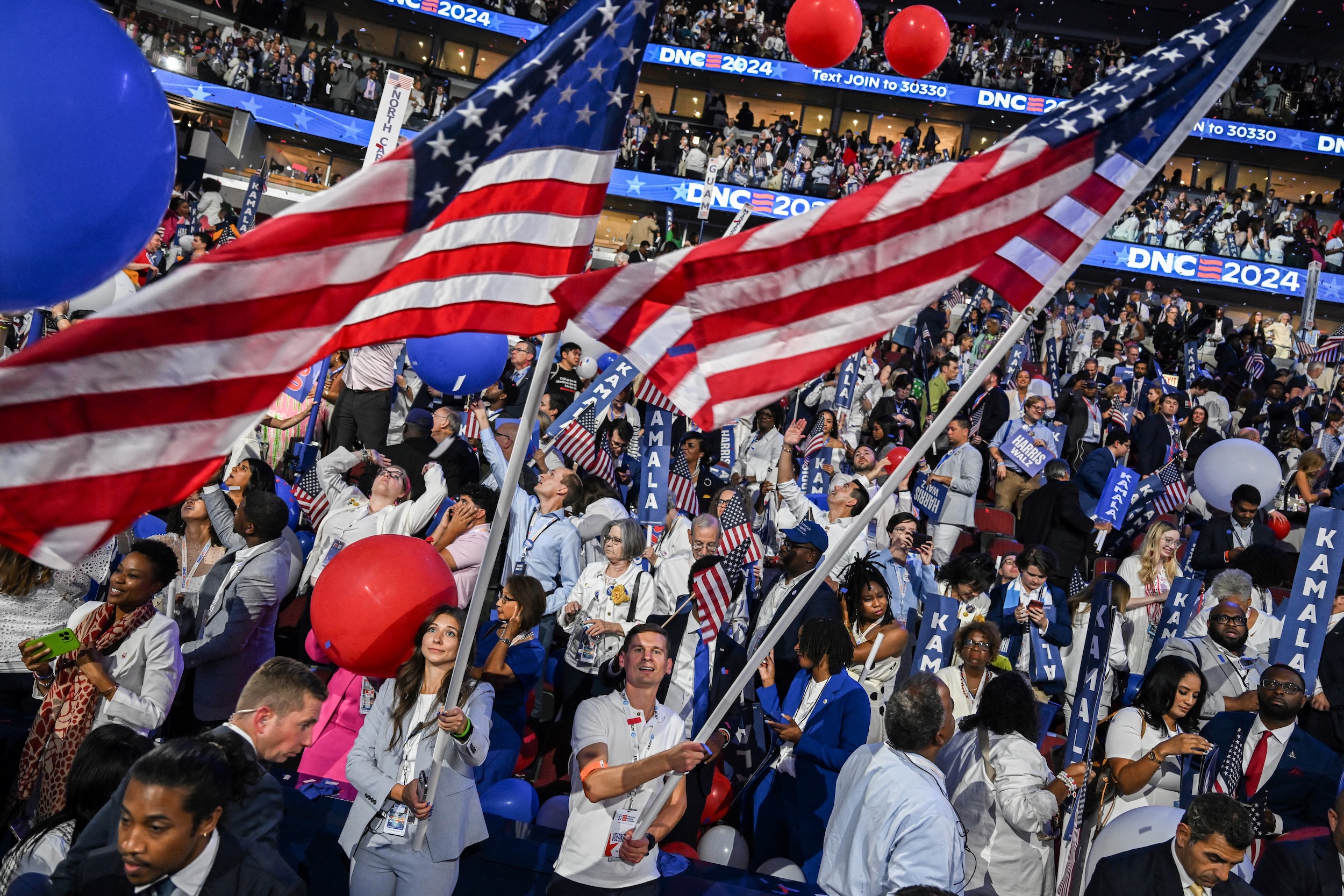
“And I’m proud to be an American,” goes the refrain of Lee Greenwood’s “God Bless the USA,” an intensely patriotic song the country singer has frequently performed at political rallies and campaign events for President Donald J. Trump. As Americans marked the 249th anniversary of the Declaration of Independence last weekend, polling data on patriotism highlighted an alarming trend. While almost all Republicans say they are “extremely” or “very patriotic,” scarcely more than one-third of Democrats now share that sentiment.
It was not always this way. In 2001, according to Gallup, America’s two major political parties were roughly even in national pride, with 90 percent of Republicans and 87 percent of Democrats identifying as “extremely” or “very patriotic.” Those figures diverged only marginally over the presidencies of George W. Bush and Barack Obama. In 2015, after six years under Obama, Republicans were still registering high levels of patriotism, at 90 percent, while Democratic patriotism had only slightly receded, to 80 percent, with no intervening year seeing the latter fall below the 74 percent recorded in 2007.
The last decade, however, has seen patriotism among Democrats plummet while the Republican figure has remained virtually unchanged. In the course of just one year, from 2015 to 2016, the share of highly patriotic Democrats fell to a then-historic low of 68 percent. That figure further declined to 60 percent in 2018 before dropping to just 42 percent in 2020.
Recovering the White House for four years after Trump’s first term did little to encourage Democrats’ enthusiasm for their country. By 2022, the midpoint of Joe Biden‘s time in office, extreme or very high levels of Democratic patriotism had anemically recovered to just 52 percent. The Republicans, meanwhile, dipped only slightly that year, to 84 percent, their lowest number on record.
ANDREW CABALLERO-REYNOLDS / AFP/Getty Images
According to Gallup’s most recent survey, taken in June, the Republicans have vaulted back to near unanimity, at 92 percent, while the Democrats have hit a new low, with just 36 percent saying they have a high level of patriotism. A less nuanced poll of registered voters taken in June by the Republican firm National Research, Inc., which merely asked if the respondents considered themselves to be “patriots,” found that 91 percent of Republicans answered affirmatively to that description compared to only 50 percent of Democrats. An alternative opinion question in the same survey found roughly equivalent figures among “conservatives” and “liberals,” at 87 and 51 percent, respectively.
Notably, the Democratic patriotism dive began around 2015, as diversity, equity, and inclusion and critical race theory began to ooze from small academic circles through virtually the entire educational system. These ideologies carried criticism of the national past, the Founding Fathers, the Constitution, free speech, perceived structural inequalities, and “whiteness” into many American institutions. Patriotic feelings have sharply declined among the younger generations who were most exposed to that unhappy development. Regardless of party affiliation, according to Gallup, only 41 percent of Gen Z and 58 percent of millennial respondents claim to be extremely or very patriotic, compared to 71 percent of Generation X, 75 percent of Baby Boomers, and 83 percent of the “Greatest Generation.”
For a political party even to be perceived as unpatriotic can be lethal in American politics. Gallup finds that 58 percent of all Americans still subscribe to high levels of patriotism. That figure, too, is a historic low, clearly dragged down by Democrats who express little love for their country.
Democratic politicos are scrambling to explain away the results or find palliative measures. Pennsylvania Senator John Fetterman (D) said of Gallup’s results: “in the greatest country in the world, that’s just wrong. I’m unapologetically grateful for our nation and the American Way of Life—today, and always.”
As Biden put it in his first public address after Kamala Harris ingloriously lost to Trump, “you can’t love your country only when you win.” The numbers show that, win or lose, Democrats don’t love it very much at all. With the progressive faction now ascendant in Democratic politics it is hard to see that these sentiments will change—or make them more electable.
Paul du Quenoy is President of the Palm Beach Freedom Institute.
The views expressed in this article are the writer’s own.
